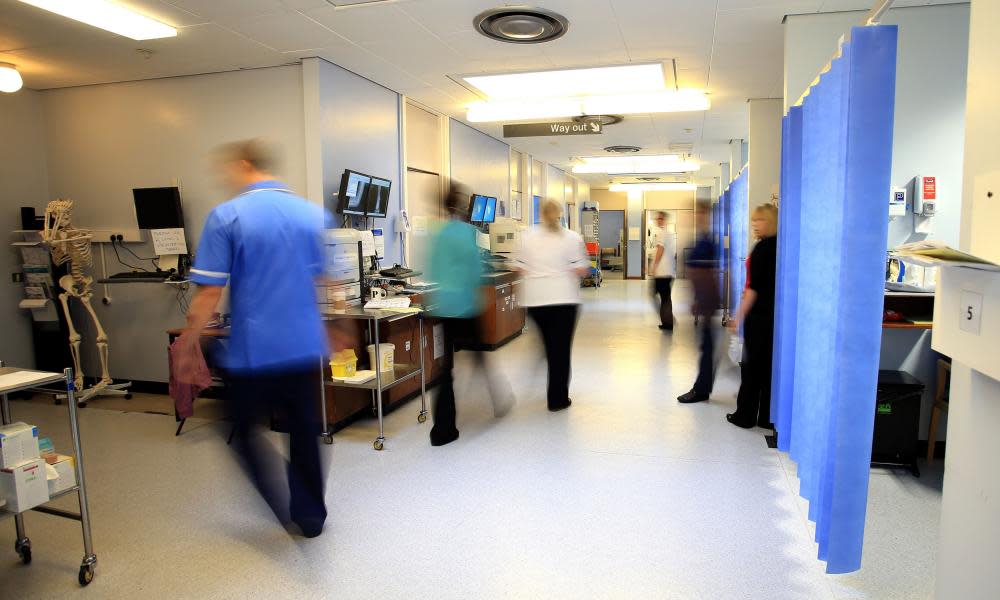Desperate measures in an underfunded NHS

Hardware in the NHS has been allowed to decline dangerously, but equally damning and dangerous is the demoralisation of doctors in particular, a process that began 20 years ago with a deliberate desire to bring the profession to heal after the made-up scandal surrounding circumstances at Bristol. The General Medical Council, in league with politicians, promoted a consumer model of healthcare and industrialised the delivery of care-setting standards and targets to foster popular support and putting non-evidence-based burdens on doctors from which many have recoiled by dropping out or retiring early. Basically the job is less enjoyable.
There may be more doctors – I cannot verify this – but I suggest they are working fewer hours or less often. The number of unfilled consultant posts throughout the country can be verified and shows a shortage of the relevant expertise. Pleading for medical students to plug the gap is undignified desperation (Students drafted in to plug NHS gaps, 15 January).
At least when I was called in as a student to help it was at Barts after the Old Bailey bombing – an unpredictable event, not a winter with a possible flu epidemic.
Dr Richard Colman
Fadmoor, North Yorkshire
• What a shame that Jack Brereton, the Conservative MP for Stoke-on-Trent South, didn’t have the chance to read your front-page headline of the same day before he sent his letter (15 January). He would have seen how Tory underfunding of the NHS, including the Royal Stoke University hospital, has resulted in the head of the Keele medical school appealing to his students to volunteer to help at the hospital and in local GPs’ surgeries. Recently the hospital was described as “third world” and there are credible reports of hundreds of patients waiting in corridors. Perhaps Mr Brereton would like to take credit for all that as well.
Richard Ellis
Stoke-on-Trent
• I sincerely hope medical students do not give up on their motivation to help (Letters, 11 January). Three years ago I contracted deadly sepsis after pneumonia with a collapsed lung, a fractured spine and a chronic lung condition. At my most vulnerable it was a junior doctor, sent by an overworked consultant, who – despite looking at death’s door himself – kindly sat and explained to me, a deaf person, what was happening. Just out of my cradle when the NHS was established, I now see total despair everywhere and, no matter how many doctors sign letters to the government nor what the plan is that they insist they have in place, there must be thousands like me who still see that nothing has changed. We need these young people and their dreams but the government is not listening and this one never will.
Jean Jackson
Seer Green, Buckinghamshire
• It must be a moot point as to whether Jeremy Hunt really wants more money for the NHS, let alone social care (Polly Toynbee: Pity the NHS, but it’s not time to get rid of Hunt, 15 January). He is seeking a 10-year settlement, which could equally mean cutting it back drastically and privatising as much as possible. Just look at the way he has ruthlessly exploited NHS staff to the point at which fewer and fewer want to work in it. We need a new government-backed NHS charter, but please not a royal commission due to report in 10 years’ time.
Dr Richard Turner
Beverley, East Riding of Yorkshire
• As Polly Toynbee suggests, it is to be hoped that Jeremy Hunt’s new position as secretary of state for health and social care will make “coherent local treatment possible”. What would also give coherence – and social justice – to his new role would be for both health and social care to be funded entirely through progressive general taxation.
This would be more equitable than a proposed hypothecated or earmarked tax funded through increased national insurance contributions, which will continue to hit the lower- and middle-income groups the most, given its highly regressive impact in comparison to income tax.
Prof Mike Stein
University of York
• Join the debate – email guardian.letters@theguardian.com
• Read more Guardian letters – click here to visit gu.com/letters

 Yahoo News
Yahoo News 
